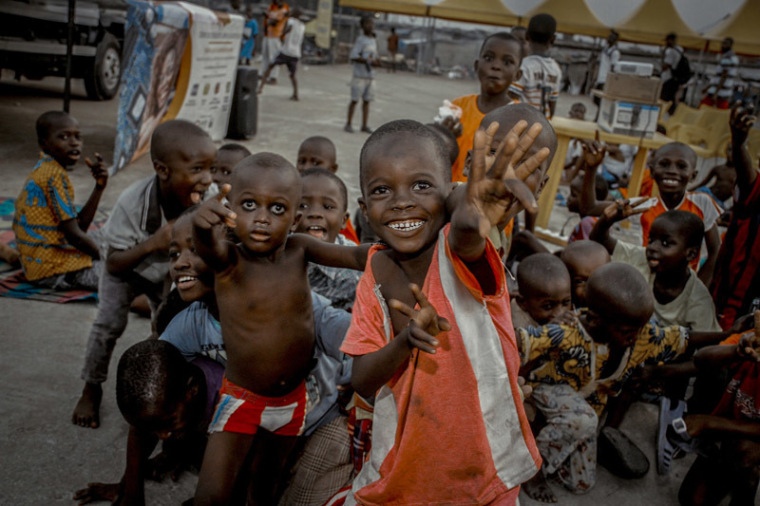
I recently wrote an article calling out the current gender wage gap.
No one took to heart the facts: women in New Zealand are currently working for free, and the Tall Ferns have only this year come into equal pay as basketballers, and such archaic prejudices are still reality in 2021…
Instead, the only feedback I received was that I shouldn’t have used a crude word.
Too often, we meet another’s experiences with ignorant and entitled observations.
We dump on them our weighted expectations, the dominating pressure to align with ‘our way or the highway’, and a subtle manipulation to take our near-sighted viewpoint as daily bread.
“That wasn’t MY experience,” we say.
And I’m happy for you.
Ignorance is bliss.
It allows the holder to blow away the shadows and brush over the ink blots and see the world through Alice’s looking glass.
But such bliss is not afforded to one who cannot be ignorant to the very real decay that lurks within certain places and pews.
It’s one thing to hold ignorance; it’s another thing to speak out from that place.
Not only does it keep you safe from having to encounter another’s reality, it also invalidates the reality that is legitimately lived by the other.
It’s easy to not look too closely.
To not see that polio and typhoid still strike school children in developing countries.
To not know that child marriages are forced upon girls who, in another context, would be our own child’s best friend.
To not be aware of the ongoing fear and suffering of teenagers cycling through a broken foster system.
Entitlement is lovely, for those who can afford to entertain it.
But if you easily dismiss the experiences of those who have not had good what was good for you, that does not mean their poor experience is somehow mythical or exaggerated.
It just means you are observing from a place of privilege.
Existing in a place of privilege is nothing to apologise for or feel embarrassed about.
But it is something to acknowledge when engaging with anyone who is not you.
It is not for the immigrant to scoff at the singular culture of one who has never travelled. It is not for the generational land-inheritor to scorn the labourer who will never own a 180m2 plot.
The only approach that is valid and true and worth bringing to every encounter is open mindedness.
Literally the smartest observation you can make is that everyone – EVERYONE – is living a different story to you.
Open mindedness is the only cure for the suspicion, fault-finding and repugnance that ignorance brings.
Recently, I was fascinated to learn this about the Zulu people (the largest ethnic group and nation in South Africa, the land where I was born):
The most common greeting in the Zulu tribe is ‘Sawubona’.
It literally means ‘I see you’.
[It means] ‘You are important to me and I value you’. It’s a way to make the other person visible and to accept them as they are with their virtues, nuances, and flaws. (Source)
Uncertainty rolls when anything is divergent or new to us.
We are disoriented by another’s strange or scary or scarred journey, especially when it is different to what we have previously believed to be a fairly generic experience.
Daring to open our minds to the weird and wondrous world around us can feel terrifying.
At the very least then, let us start by cultivating awareness.
Awareness that what brings you joy may bring another trauma.
Awareness that what seems ‘off’ to you may be leakage from another’s unhealed pain.
Awareness that ignorance may seem like bliss, but narrow-minded privilege is not.
Some people have found similarities between the word Sawubona and Hindi’s Namaste.
These are more than greetings... There’s an immense beauty in these gestures. There’s something healing and even cathartic about them that can serve as inspiration in our daily lives.
Sawubona is a word that reminds us… to see the other person as they are and pay attention to them.
We have to authentically understand them and see their needs, desires, fears, sorrows, and virtues.
Being ignorant means saying to the other: “You’re not seeing things from my perspective.”
Being aware means changing that speech to: “Help me understand your view.”
Let’s look intentionally at the world around us, and peer into the dark corners, and try to understand the root of the darkness we find.
And then try to learn how we might help to lift it.
Let’s spend less time telling another person their experience is ‘not valid in this context’.
Help me understand your view.
Let’s make a conscious move to SEE, and LISTEN, and then – be they man, woman, white, black, trans, gay, disabled, rich, poor, broken or lost – respond in the only way that matters:
Sawubona.
I see you.
AUTHOR’S NOTE: This is my last article for this platform. It has been an honour to write here, and I salute the many people who made such an experience possible. A personal site for my ongoing writing is in the pipeline – follow @girlkaleidoscope or drop me an email (emma.mcgeorge@gmail.com) if you’re interested in future ink scratchings and meandering musings... Ngā mihi. Emma

Emma is an Italian-South African with a New Zealand passport and an international heart. She spent years training student choirs and co-running a puppeteering business, before working for a humanitarian organisation in New Zealand (7 years) and Papua New Guinea (3 years). Currently a nomad living between various countries and towns, Emma's deep joy is in writing, music, cooking up an Italian storm, and taking time to listen to people’s stories.
Read Emma's creative expressions at http://www.girlkaleidoscope.wordpress.com or https://pngponderings.wordpress.com/2016/09/02/finding-the-beauty/
Emma’s previous articles may be viewed at www.pressserviceinternational.org/emma-mcgeorge.html